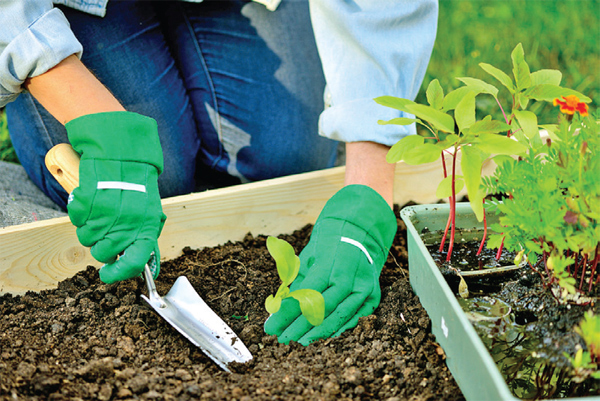Organic gardening is becoming more popular among farmers because it is safer for the market to consume. One way to use natural materials is to start a compost heap with vegetables and other waste food. Another option is to use manure, which can be easily obtained from a store. Organic gardening must be done with the assistance of some of nature's friends. A toad is an excellent example because they consume over 10,000 insects in three months. You could also use birds such as the house wren, which feeds on caterpillars and spiders.
Organic gardening is becoming more popular among farmers because it is much safer for the market to consume. In fact, those who want to make their own garden at home can do so by following the same principles.
To begin, organic gardening does not use any fertilizers, nutrients, or pesticides in order to produce high-quality crops. Because you only use natural materials and rain water instead of tap water, you could argue that this technique simply lets nature take its course.
One way to use natural materials is to start a compost heap with vegetables and other waste food. This can even occur with grass that has been cut by the lawnmower and then mixed together and spread throughout the garden to aid in the growth of your plants.
Another option is to use manure, which can be easily obtained from a store. If you don't like getting your hands dirty, let someone else do it; for example, some people let chickens roam freely in their gardens. In fact, it doesn't take much to keep your feathered friends fed because meat products and dead animals left in a bin for a couple of weeks produce maggots that can be fed to them.
Earthworms, believe it or not, help cultivate the soil so that your vegetables or fruits can grow. This is due to the fact that this creature digs deep into the ground and aerates the soil, bringing various minerals to the surface and improving drainage. It also leaves behind casting that is five times as rich in nitrogen, phosphorus, and potassium, according to experts.
The one thing you have to deal with in any garden is unwanted pests. This is why pesticides were created, but because they are harmful to humans, organic gardening must be done with the assistance of some of nature's friends.
A toad is an excellent example because they are known to consume over 10,000 insects in three months. Armyworms, crickets, gypsy moth caterpillars, slugs, and squash bugs are among them. You could also use birds such as the house wren, which feeds on caterpillars and spiders.
The best part about having toads or birds around is that they are free. You simply need to create the ideal environment for them to enter your backyard.
In fact, some garden insects that you consider to be harmful are actually beneficial to you. Consider the ladybug or the praying mantis. These creatures are fiercely territorial and will devour anything that crosses their path.
Some plants can also be used to keep pest populations under control. Planting rosemary, sage, or thyme has been shown to repel butterflies, while marigolds are an effective nematode repellent.
Crop rotation, on the other hand, is the most effective method of growing organic crops all year. This means that you change your crop every few months.
By adhering to such principles, you will notice that the majority of the leftovers from each meal, as well as other garbage in your home, do not go to waste. This is recycled and converted into energy, which can then be used to power your garden. It is also inexpensive and contributes to environmental protection.
























